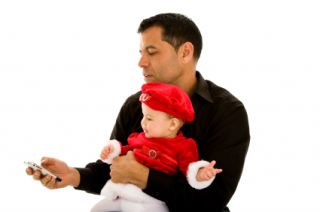Gender
Does Parental Leave Increase or Decrease Employment/Childcare Equity?
The case of tenure track assistant professors.
Posted May 28, 2012
A frequent topic of interest and gossip around many workplaces, including my own university, is parental leave. Some people have made the case that parental leave should be given to fathers and mothers, so that equity in childcare will result. The implication here is that if men shoulder more of the childcare load, women will be less likely to experience a negative career impact from the birth of a child. Others have suggested that male attitudes about gender roles will have to change first and there is some support in that egalitarian attitudes held by fathers are associated with participation by those fathers in childcare (Aldous, Mulligan, and Bjarnason, 1998), though a number of critics have also noted that the link between social attitudes and behavior is often quite poor.

But a recent article I read, Gender roles and infant/toddler care: Male and female professors on the tenure track by Steven and Christopher Rhoads takes an interesting approach. They consider that not only hormones (testosterone and oxytocin) play a role in making women (on average) more nurturing toward their young but also the role of paternity certainty and the reproductive costs and benefits experienced by men and women. They note that women spend more effort in childcare than men across societies, even in ones that are very egalitarian.
In their own study, they looked at male and female tenure track assistant professors who had a child under two years of age. They measured performance of childcare, breastfeeding, enjoyment of childcare, gender role attitudes on sharing childcare, the child’s preferences, leave-taking, use of paid childcare, and spousal employment. One reason for looking at tenure track professors is that these women have a particularly strong incentive to have an equitable division of childcare as there is significant pressure to publish and to devote significant time and effort to that goal in order to achieve tenure.

What did they find? Unsurprisingly, that female academics engaged in more childcare than the male academics. More interestingly, while the male professors who took parental leave did engage in more childcare than those that did not, there was no difference for female professors. In addition, the males who took leave still did less childcare than the women that did not take leave. Which might beg the question of what those leave taking male professors are up to?
There were a variety of other factors that predicted the level of participation in childcare including whether one’s spouse worked or not. When men’s views on childcare were assessed, those who strongly believed a husband and wife should share equally, did perform more childcare than other men. But it was still less than the women who did the least childcare (the ones who didn’t take parental leave). Women also reported enjoying most aspects of childcare more than men.

There are a lot of ways one can look at these results and a number of implications…but the one that sticks out to me goes back to what those leave taking men are up to if it’s not splitting the childcare 50/50. And it’s summed up by a quote from one of the female participants: “If women and men are both granted parental leaves and women recover/nurse/do primary child care and men do some care and finish articles, there’s a problem, though a problem with no clear solution” (Rhoads & Rhoads, 2012, p.28). Anecdotally, I’ve also heard stories from colleagues about men taking parental leave when their wives don’t work and when there is significant maternal kin support in terms of childcare as well.
An interesting puzzle.
References:
Aldous, J., Mulligan, G., & Bjarnason, J. (1998). Fathering over time: What makes the difference? Journal of Marriage and the Family, 60, 809-820.
Rhoads, Steven, E. & Rhoads, Christopher, H. (2012). Gender roles and infant/toddler care: Male and female professors on the tenure track. Journal of Social, Evolutionary, and Cultural Psychology, 6, 13-31.


